
Bruce Bower has written about the behavioral sciences since 1984. He often writes about psychology, anthropology, archaeology and mental health issues. Bruce has a master's degree in psychology from Pepperdine University and a master's degree in journalism from the University of Missouri. Following an internship at Science News in 1981, he worked as a reporter at Psychiatric News, a publication of the American Psychiatric Association, until joining Science News as a staff writer. In 1996, the American Psychological Association appointed Bruce a Science Writer Fellow, with a grant to visit psychological scientists of his own choosing. Early stints as an aide in a day school for children and teenagers with severe psychological problems and as a counselor in a drug diversion center provided Bruce with a surprisingly good background for a career in science journalism.

Trustworthy journalism comes at a price.
Scientists and journalists share a core belief in questioning, observing and verifying to reach the truth. Science News reports on crucial research and discovery across science disciplines. We need your financial support to make it happen – every contribution makes a difference.
All Stories by Bruce Bower
-
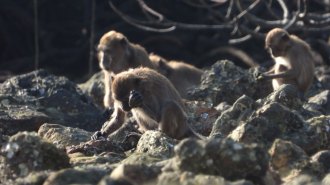 Archaeology
ArchaeologySome monkeys accidentally make stone flakes that resemble ancient hominid tools
A study of Thailand macaques raises questions about whether some Stone Age cutting tools were products of planning or chance.
-
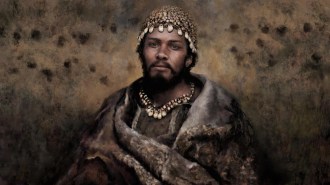 Archaeology
ArchaeologyAncient DNA unveils disparate fates of Ice Age hunter-gatherers in Europe
Ancient DNA unveils two regional populations that lived in what is now Europe and made similar tools but met different fates.
-
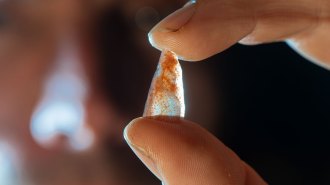 Archaeology
ArchaeologyHomo sapiens may have brought archery to Europe about 54,000 years ago
Small stone points found in a French rock-shelter could have felled prey only as tips of arrows shot from bows, scientists say.
-
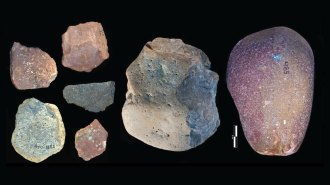 Anthropology
AnthropologyHominids used stone tool kits to butcher animals earlier than once thought
Finds in Kenya push Oldowan tool use back to around 2.9 million years ago, roughly 300,000 years earlier than previous evidence.
-
 Archaeology
ArchaeologyChemical residue reveals ancient Egyptians’ mummy-making mixtures
Chemical clues in embalming vessels reveal previously unknown ingredients used to prepare bodies for mummification and their far-flung origins.
-
 Archaeology
ArchaeologyComplex supply chains may have appeared more than 3,000 years ago
Finds from one of the world’s oldest shipwrecks hint that miners in Central Asia and Turkey provided a crucial metal to Mediterranean rulers.
-
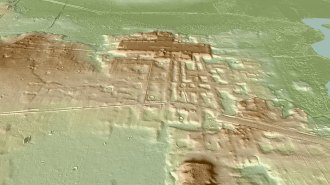 Archaeology
ArchaeologyLasers reveal sites used as the Americas’ oldest known star calendars
By around 3,100 years ago, Mesoamerican ritual complexes tracked celestial cycles using a 260-day count, a huge lidar mapping project shows.
-
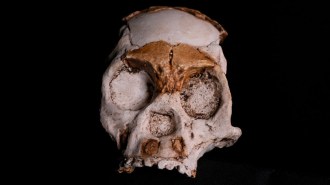 Anthropology
AnthropologyHomo naledi may have lit fires in underground caves at least 236,000 years ago
Homo naledi may have joined the group of ancient hominids who built controlled fires, presumably for light or warmth, new finds hint.
-
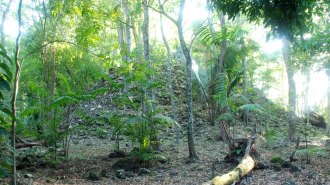 Archaeology
ArchaeologySome Maya rulers may have taken generations to attract subjects
Commoners slowly granted authority to kings at the ancient Maya site of Tamarindito, researchers suspect.
-
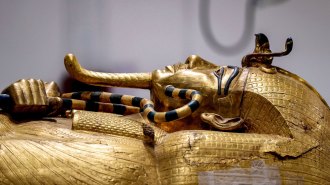 Archaeology
ArchaeologyKing Tut’s tomb still has secrets to reveal 100 years after its discovery
More of Tut’s story is poised to come to light in the coming years. Here are four things to know on the 100th anniversary of his tomb’s discovery.
-
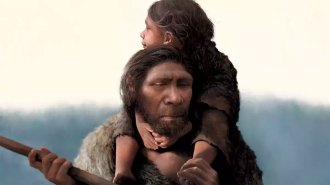 Genetics
GeneticsAncient DNA unveils Siberian Neandertals’ small-scale social lives
Females often moved into their mate’s communities, which totaled about 20 individuals, researchers say.
-
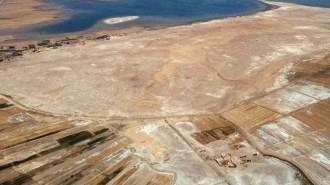 Archaeology
ArchaeologyDrone photos reveal an early Mesopotamian city made of marsh islands
Urban growth around 4,600 years ago, near what is now southern Iraq, occurred on marshy outposts that lacked a city center.